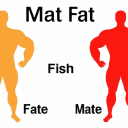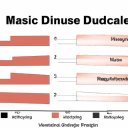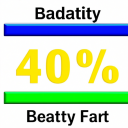

When you think of a bodybuilder, what comes to mind? Chiseled abs, bulging biceps, and a sculpted physique, right? But have you ever wondered if all that muscle mass makes bodybuilders overweight? It's a paradox that has sparked much debate and confusion in the fitness world. In this article, we will explore the concept of the muscle mass paradox, delve into the factors that determine body weight, and finally answer the question: are bodybuilders considered overweight?
Before we dive into the paradox, it's crucial to understand the concept of body composition. Body composition refers to the proportion of fat, muscle, bone, and other tissues in the body. Muscle mass, in particular, plays a significant role in defining body composition.

Muscle mass refers to the total weight of the muscles in your body. It includes both the skeletal muscles responsible for movement and the smooth muscles that aid in involuntary functions like digestion. On the other hand, fat mass refers to the weight of the adipose tissue in your body. Bodybuilders typically have a higher muscle mass and lower fat mass compared to the average individual.
The Body Mass Index (BMI) is a commonly used tool to assess body weight status. It calculates an individual's BMI by dividing their weight in kilograms by the square of their height in meters. Based on the calculated BMI value, individuals are classified as underweight, normal weight, overweight, or obese.

However, the BMI has its limitations, especially when it comes to bodybuilders. Since the BMI only takes into account weight and height, it fails to consider the distribution of weight within the body. As a result, individuals with a high muscle mass may be classified as overweight or even obese, despite having low levels of body fat.
One of the primary reasons bodybuilders may appear overweight according to the BMI is their high muscle density. Muscle tissue is denser than fat tissue, meaning it takes up less space for the same weight. This higher density contributes to a heavier overall weight for bodybuilders, even if they have minimal body fat.

To illustrate this point, let's consider an example. Suppose we have two individuals with the same height and weight. However, one is a bodybuilder with a high muscle mass, while the other is sedentary with a higher proportion of body fat. Despite having similar BMI values, the bodybuilder will appear more muscular and heavier due to their dense muscle tissue.
When determining whether a bodybuilder is overweight, it is essential to consider their body fat percentage. Body fat percentage refers to the proportion of fat mass in relation to total body weight. While bodybuilders have lower overall body fat percentages, they still require a certain level of fat for various physiological functions.

For men, a body fat percentage of around 6-24% is considered healthy, while for women, it ranges from 16-30%. Bodybuilders often aim for lower percentages to achieve the defined muscle definition and vascularity associated with their sport. Therefore, even though their weight may be higher, their low body fat percentage indicates a lean and fit physique rather than being overweight.
It is crucial to dispel the myth that weight alone determines a person's health. While maintaining a healthy weight is important, it is not the sole indicator of overall health. Factors such as muscle mass, body fat percentage, cardiovascular fitness, and lifestyle habits all play a role in determining an individual's well-being.

Bodybuilders, with their rigorous training regimens and focus on muscle development, often exhibit exceptional cardiovascular fitness and strength. They prioritize building lean muscle mass, which not only enhances their physical appearance but also improves their overall health and athletic performance.
In conclusion, bodybuilders are not considered overweight despite their higher weight. The muscle mass paradox arises due to the limitations of the BMI, which fails to account for the distribution of weight within the body. While bodybuilders may have a higher weight, their low body fat percentage and dense muscle tissue contribute to their well-defined and muscular physiques.

It is important to remember that weight alone does not determine one's health or fitness level. Bodybuilders embody the epitome of strength, discipline, and dedication to their craft. So, the next time you see a bodybuilder, appreciate the incredible amount of effort and hard work that goes into achieving their impressive physique.